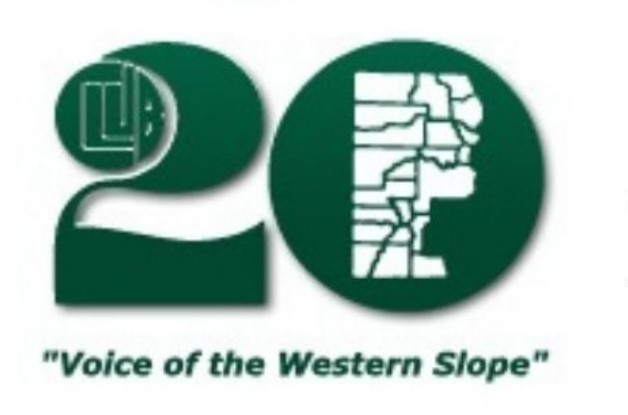I served as President of Club 20 through the decade of the 1990s, a period of great change and significant growth for the organization, which had been around for forty years as the voice of the Western Slope. I followed in the footsteps of two giants, my predecessors John Vanderhoof and Bill Cleary, who had run the organization for the two decades before and had forgotten more Western Colorado history and politics than I would ever learn. Yet they both shared most of the same frustrations we faced during my tenure there.
We were frequently confronted by Front Range leaders accusing us of unfounded distrust. “No one here is ignoring the Western Slope,” they patronizingly assured us. In Washington, a member of the president’s cabinet told us, “You always act like the poor picked-on stepchildren.” Once we even hosted a senior California official who scolded our annual convention, “The Western Slope always thinks someone’s trying to steal its water.” We were accused of such paranoia so often that I had a standard response: “Well, we have a long history to base that on.”
Western Colorado is different today than in the 1990s when we battled the use of state funds to build Denver’s airport, fought for local involvement in managing public lands, and worked to bring fiberoptic connectivity to rural communities. The population is more diverse than in the 1950s when Western Slope newspaper publishers founded Club 20. Its tourism economy is substantially different than in in the 1960s when boosters Art Moss and Dale Hollingsworth launched Club 20’s highly successful “friendly native” program.
Indeed, many of today’s Western Slope communities bear little resemblance to those days. In many ways they have much less in common, as shown by election returns in any of the last 10 cycles. Moffat, Rio Blanco, Mesa, Delta, Montrose, and Montezuma Counties are reliably on one side, while Routt, Summit, Pitkin, Gunnison, San Miguel, and La Plata are on the other. Several of those counties still have very strong agricultural economies, along with mining, power production, and forestry. Others are almost entirely dependent on tourism, and still others have amazingly diverse economies in this era of instant communication, rapid travel, and work-from-anywhere. Some communities are now more economically connected to Denver than Grand Junction; some are playgrounds for the rich while others still have trailer parks; some have efficient public transportation systems; others are too rural to need them.
Yet as much as things have changed, some things will never change. There are still many issues that divide people, in Western Colorado as everywhere. But in America today that divide is less about parties, and the country is not especially divided along geographic lines (north-south, east-west). Rather, the country is divided along urban-rural lines like never before.
As Club 20 searches for a new Executive Director this year, and thinks about its long-term plans, it is worth remembering a few simple facts that will always unite the Western Slope.
The 20 counties of Western Colorado are the source of most of the State’s tourism (by far its largest industry), three-fourths of its water, nearly all its minerals, fourteeners, ski areas, and wildlife. But 80 percent of the State’s population lives on the Front Range, where those resources are always in demand. For Front Range voters, it is only natural that the interests of Western Slope communities, whose livelihoods are at stake, are a secondary consideration, at best.
Distribution of transportation funds, Club 20’s founding issue in the 1950s, remains critical to every Western Slope County. Should funding go to roads or to transit systems? Should highway funding be based on the state’s 88,740 road miles or its 185,486 lane miles? If the latter, rural Colorado loses, making the delicate balance of distribution formulas crucial.
There are plenty of issues that divide Western Slope communities, but water will always unite them. While rural Coloradans have much in common with their friends on the Front Range, the metro area’s unrelenting growth, and need for more water, will always be a potential threat to Western Colorado’s own economic future, as is the thirst of Southern California, and the federal government’s mismanagement of the Colorado River Basin.
On issues like transportation funding, water, energy, and numerous others, the Western Slope is at a disadvantage, even when organized and united through Club 20. Yet that united front is the only good choice and has produced countless victories over the decades. That’s why Club 20 matters as much today as ever.





Comments on this entry are closed.